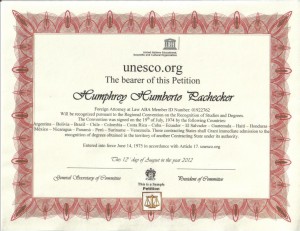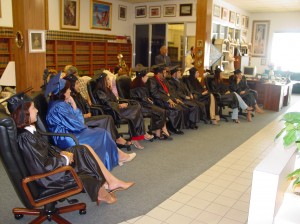 &&&&&&-ESPAÑOL & ENGLISH-&&&&&&:
&&&&&&-ESPAÑOL & ENGLISH-&&&&&&:
 Reciprocidad ahora para todos nosotros abogado/as extranjeros – Reciprocity Now for Foreign Professionals in USA
Reciprocidad ahora para todos nosotros abogado/as extranjeros – Reciprocity Now for Foreign Professionals in USA
Estimados colegas y amigos de NAFA. Como pueden ver en este articulo hemos pedido al Colegio Internacional de Abogados (“IBA”) al cual somos miembros desde el año 1994, para hacer un evento en conjunto promoviendo la regla de reciprocidad entre abogados extranjeros y locales en Estados Unidos y en Inglaterra. El tema de mi programa de reciprocidad abogados en Estados Unidos desde 1994 y ahora 2016 es una cuestión de retraso; esta cuestión de la reciprocidad entre EUA. y abogados de jurisdicciones extranjeras, ha sido, durante mucho tiempo un punto de contención, es un problema calentando de nuevo por NAFA. Ver detalles de la próxima Conferencia Internacional de abogados en el Estado de Washington DC; Septiembre 18.To: I.B.A. Academic and Professional Development Committee Septiembre 18. http://www.ibanet.org/Default.aspx
Humphrey H Pachecker, presidente y fundador de la NAFA, la Asociación Nacional de Abogados para Abogados Extranjeros, (www.nafalaw.com) y, Universidad UNPAM. Abogado practicante miembro de American Bar Association, ABA ID#:01049251 desde 1992 a 2008. Actualmente afiliado practicante, ABA ID#: 01922762. Vice Presidente del ABA Section of International Law. En mis dos libros recientes, “El Inmigrante Universo” y “Los Maestros en Acción en America” hemos hecho hincapié en que nuestra mejor arma para contribuir en una solución al problema de la inmigración ilegal que ahora se enfrenta, es la educación. Existen varios métodos a seguir como he sometido en estos libros, empezando por el principio de reciprocidad que asegure al Estado de Florida una prosperidad económica global ahora más necesitada, en un momento en que otros países en el resto del continente americano se encuentran en el uso de reciprocidad similares siguiendo un principio establecido por un tratado llamado “Convenio Regional de Convalidación de Estudios, Títulos y Diplomas de Educación Superior en América Latina y el Caribe 1974.” (Véase UNESCO – http://portal.unesco . org). Cito, “Deseosos de afirmar e incrementar su cooperación en asuntos relacionados con la educación y el uso de los recursos humanos y con el objetivo de promover la máxima integración de la zona, fomentar el conocimiento y salvaguardar la identidad cultural de sus pueblos, así como de lograr una mejora constante y progresiva en la calidad de la educación y contribuir al firme propósito de favorecer el desarrollo económico, social y cultural y el pleno empleo en cada país de la región y en la región en su conjunto…” Convention firmado el dia 19th of Julio, 1974 por los siguientes paises:
Argentina – Bolivia – Brasil – Chile – Colombia – Costa Rica – Cuba – Ecuador – El Salvador – Guatemala – Haití – Honduras – México – Nicaragua – Panamá – Perú – Suriname – Venezuela. Aquí en este Convenio los únicos Estados Paises no-signatarios en esta convención son los Estados Unidos y Puerto Rico.
Por favor, ayúdenos a ofrecer todo nuestro apoyo a nuestros colegas extranjeros en relación con este tema de reciprocidad. Con este fin el mejor apoyo a esta petición de reciprocidad que incluya a los dos únicos países no signatarios la mejor vía es que envíes vía correo electrónico tu peticion de apoyo a esta iniciativa registrándote bajo la categoría de interesado en la ley, entrando vía: www.americanbar.org a la brevedad posible y, menciona esta campaña de NAFA ASSOCIATION.
Como abogado/as extranjeros en EE.UU., hemos sido favorecidos con grandes logros- el principal es que ahora 33 estados de los 50 estados de EE.UU., ya tienen reglas de reciprocidad las cuales permiten abogado/as extranjeros solicitar y ser licenciados para ejercer abogacía. Pero debemos de solicitar que el resto de la nación también implemente la admisión a ejercer por reciprocidad, no solo para abogados, también para otras profesiones.
Te invitamos para que, como abogados extranjero, nos apoyes en esta campaña de obtener reciprocidad para todos en Estados Unidos, esto lo puedes hacer escribiendo vía tu correo electrónico “email” directamente al Comité ABA – FLC para abogados extranjeros- vía: INTFLC@mail.americanbar.org con copias a:RBrown@BGDLEGAL.COM; & INTLEGALPRACTICEDIV@mail.americanbar.org Atención de: Licda. Rosa Lima; Licdo. Alejandro Suarez y, Robert L. Brown, Programs Officer. Todos nos beneficiaremos.
Respetuosamente,
Humphrey Humberto Pachecker
CEO – www.nafalaw.com
&&&&&&-ENGLISH-&&&&&&
Dear colleagues and friends of NAFA. As you can see in this article we have asked the International Bar Association (“IBA”) to which we are members since 1994, to make a joint event promoting the rule of reciprocity between foreign and local lawyers in the United States and England. The theme of my program reciprocity for lawyers in the United States since 1994 and now 2016 is a matter of delay; this question of reciprocity between the US. and lawyers from foreign jurisdictions, has long been a point of contention, it is a problem heating up again by NAFA. View details of the forthcoming International Conference of lawyers in the State of Washington DC; September 18th.
| To: I.B.A. Academic and Professional Development Committee |
| North American Regional Forum Septiembre 18. http://www.ibanet.org/Default.aspx |
Re: Petition on behalf of foreign attorneys by NAFA Attorneys Association to IBA for the creation of reciprocity event amongst foreign and US States jurisdictions.
Dear Sir or Madam:
Thanks for your invitation to the program for the September Washington DC Event.
As a brief introduction, my name is Humphrey Humberto Pachecker, IBA Member 1061345, and 017031 since 1994, CEO of NAFA, National Association for Foreign Attorneys (www.nafalaw.com).
The issue of my program is of lawyer reciprocity in United States in 2016 is an overdue issue; this issue of lawyer reciprocity between Florida and jurisdictions, long a point of contention, is an issue heating up again by NAFA. Please see ABA Link for F.L.C., reciprocity rule in 33 U.S.A., states: http://www.americanbar.org/content/dam/aba/administrative/professional_responsibility/foreign_legal_consultants.authcheckdam.pdf
In USA 1989 in a legislative session of the house committee in Tallahassee, Florida a proposal for across the board reciprocity draft bill was introduced which did not made a good first impression, and it dissipated with little substantive debate.
However, at that moment the issue on the table was “Whether constitute the unlicensed practices of law for a foreign out of state lawyer or law firm to establish an office in Florida for the purpose of giving legal consultation on the law of his/her/its home state/ country to clients who are either residents or nonresidents of Florida.”
The answer was already there in The Florida Bar vs. Savitt, 363 So.2d 559 (Fla. 1978) which dealt with a dispute between The Florida Bar and a firm of New York lawyers setting up an office in Florida in which the partner associated to supervise the new office was not admitted to the practice of law in Florida.
This gave way in 1991 to The Florida Bar Rule 16, of the rules regulating The Florida Bar. The Foreign Legal Consultancy Rule which authorizes and encourage the foreign attorney to establish some ties to Florida for the practice of law under the International Law Section, which has benefitted our communities and everyone in it.
Many years have passed since the question of reciprocity was answered and the issue solved. However, today we must take another step forward which will provide us with an opportunity to gain a great deal from the union of the world economy in international business permitting the legal and planning infrastructure necessary for international business to operate with minimal independent the road to a global economic development in Florida. One example is the recent Free Trade Agreement between Colombia – USA and others.
A healthy example of this issue, as follows, is, The Louisiana Bar Rule XVII, Section 6 Louisiana Bar to wit: II. Equivalency
Application: In order to meet the requisites for admission, an applicant who graduates from a law school not located in the United States or its territories may submit an application for an equivalency determination in accordance with La. Sup. Ct. Rule XVII, Sec. 6.
Equivalency Determination Panel: A panel comprised of faculty members from each ABA accredited law school in this state, appointed by the Court, shall consider all requests for equivalency determination and make recommendations to the Committee. One member of the Committee shall also be appointed to the panel, but such member shall only vote in the event of a tie.
Burden of Proof: The applicant bears the burden of proving that his or her education is equivalent to that offered in the United States or its territories by a law school accredited by the American Bar Association.
American Law School Credit: The applicant must also prove that he or she has successfully completed a minimum of 14 hours of credit, or the equivalent, at an ABA accredited law school, in any of the following subjects: Constitutional Law, Contracts, Criminal Law, Corporations or Business Organizations, Evidence, Federal Jurisdiction, Federal Civil Procedure, Intellectual Property, Louisiana Civil Procedure, Louisiana Obligations Law, Professional Responsibility, Taxation, Torts, Uniform Commercial Code. No more than 4 hours in any one subject shall be counted toward the requirement. La. Sup. Ct. Rule XVII, Sec. 6(B).
The principle of reciprocity will secure for UK – USA, a global economic prosperity now most need it in a time when other countries are doing well in similar reciprocity issue following the principle of Regional Convention on the Recognition of Studies, Diplomas and Degrees in Higher Education in Latin America and the Caribbean 1974. (see UNESCO – http://www.unesco.org/education/studyingabroad/tools/conventions_lac_cover.shtml#I
Desirous of strengthening and increasing their co-operation in matters relating to education and the use of human resources and with the aim of promoting the maximum integration of the area, of encouraging knowledge and safeguarding the cultural identity of its peoples, as well as of achieving a constant and gradual improvement in the quality of education and contribution to their firm resolve to foster economic, social and cultural development and full employment in each country of the region and in the region as a whole; here the only States parties non-signatory in this convention are the United States, Puerto Rico and several European countries.
Respectfully submitted,
Humphrey Humberto Pachecker
CEO – www.nafalaw.com

